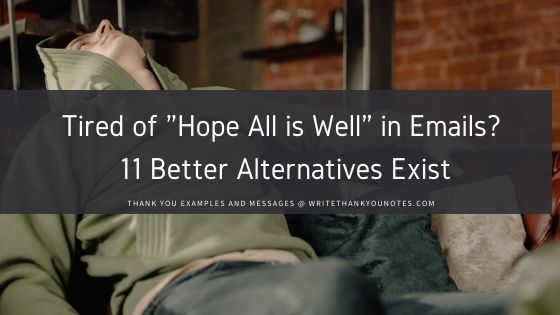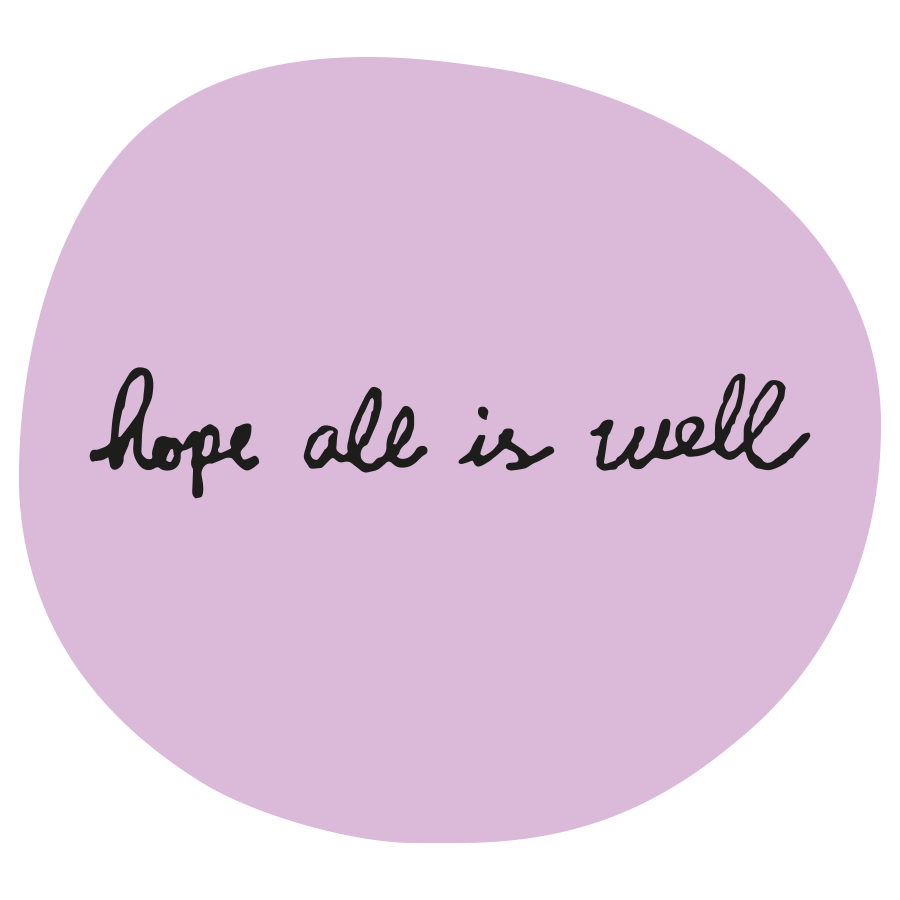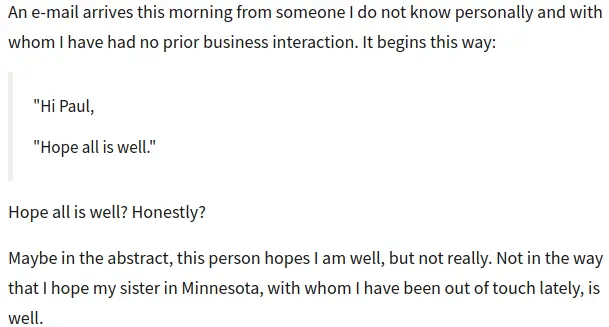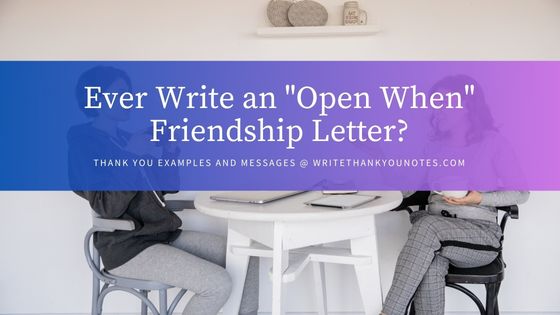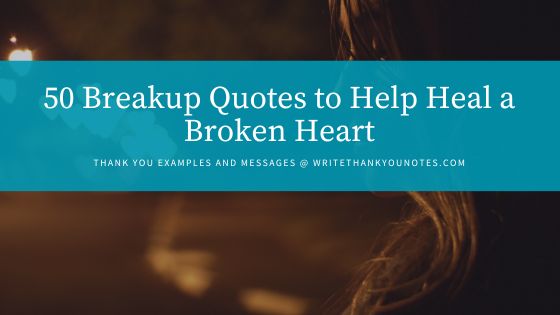How many times have you read a work e-mail containing the over-used and formal “hope all is well”, or the more casual “hope everybody is doing well”, mindlessly added as an uninspired closing?
Or worse, you are the one writing an e-mail and close it out with the generic “hope all is well” – isn’t there something more meaningful and heartfelt you can say that conveys your good wishes better than that tired phrase?
‘Hope all is well’ can be annoying as … well, it can be annoying.
Yes. Inject some life into your professional greetings! Here are some alternatives to the standard “hope all is well” line that your work clients and colleagues might better appreciate.
What to Say Instead of “Hope all is well” in Work Emails
1. “I hope this email finds you well.”
Where have they been hiding? Not quite as boring as “I hope all is well with you”, this phrase works well to begin or close out an email. While a little distant, it hides your true feelings well if you are writing to an ex, for example.
2. “I hope you’re having a two-coffee (versus a four-coffee) day.”
A one-coffee day would be ideal, but we can only ask for so much. A two-milkshake day would be good, too.
3. “What’s the latest in your world?”
Prepare for a thorough reply. Or ask a more pointed question with a narrow scope, such as:
4. “How are you holding up in this [covid BS, summer heat, winter cold, weather]?”
A little more casual, a little more conversational.
5. “Travelled anywhere fun lately?”
An evil question during 2020 perhaps, but still gets the conversation started.
6. “Hope you’re hanging in there. Sending good vibes your way!”
This is a nice way to send warmth without asking for anything in return. Especially useful when your time is limited and your interest is low yet you want to extend a kind word to a fallen colleague or one expecting a promotion. Or working from home with kids.
7. “Any plans for the [summer/long weekend/holidays]?”
This one is nice, but if you ask about their evening plans, they might assume you are asking them out on a date. Some recipients will answer and others will ignore your question as just making conversation.
8. " How’s life on that side of the office today?"
If you share an office, this works; replace with city or region or whatever is applicable. “How’s life on that side of the pond?” works too, if applicable.
9. “I trust you are all well and enjoying good health.”
This one can seem a little weird, depending on your relationship with the person. Reserve this for friends and acquaintances around holidays during a pandemic.
10. “How about those Jays?”
Much less personal (unless the person is a die-hard fan of whichever sports team you substitute here) and appropriate for when you don’t know what else to say but want to avoid the insincere “love you” closing.
11. “Enjoy your day (it may be your last)”
Just kidding. Spice up your email but maintain a friendly, light tone. Avoid triggering existential ponderings while at work. Be funny and casual with co-workers you know well, but be careful of saying something that may be interpreted the wrong way.
12. “Warm greetings to you and your colleagues from everyone at [company name].”
When you are writing on behalf of your company and want to remove yourself personally from the message, this phrase is a nice way to do so.
13. “It is good to be in touch with you again.”
Stating a nicety is appreciated and does not require a response.
14. “I know you’re swamped, so I’ll make this short and sweet.”
Appreciated by productive and creative workers everywhere, the brief email clearly outlining what you need and what the next steps are is always a winner. By showing you value their time, your work contact will likely return the sentiment and get to the point quickly in their emails, too. Right…?
15. “We were introduced by ____ at _____; good to be in touch again.”
If you are writing a work contact with whom you connected briefly at a conference or under some other relevant circumstance, mention the connection. Even if the recipient seems unlikely to remember, the fact that you did remember will be a step in the right direction.
16. Get straight to the point.
Are you looking for a job reference or an opportunity to pitch an idea? Perhaps you are introducing yourself to a new team member. Skip the filler and get straight to the point.
Annoyed by Insincere Platitudes?
You’re not alone. At least half of the work emails I get begin with a variation on: “I hope all is well.” The phrase has lost all meaning. It has become filler and an expected lead-up to the real question or point of the message.
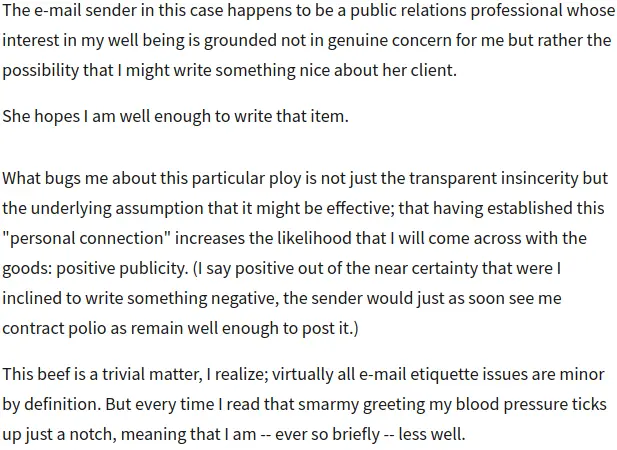 Be creative with your emails; being boring could cost you a sale.
Be creative with your emails; being boring could cost you a sale.
